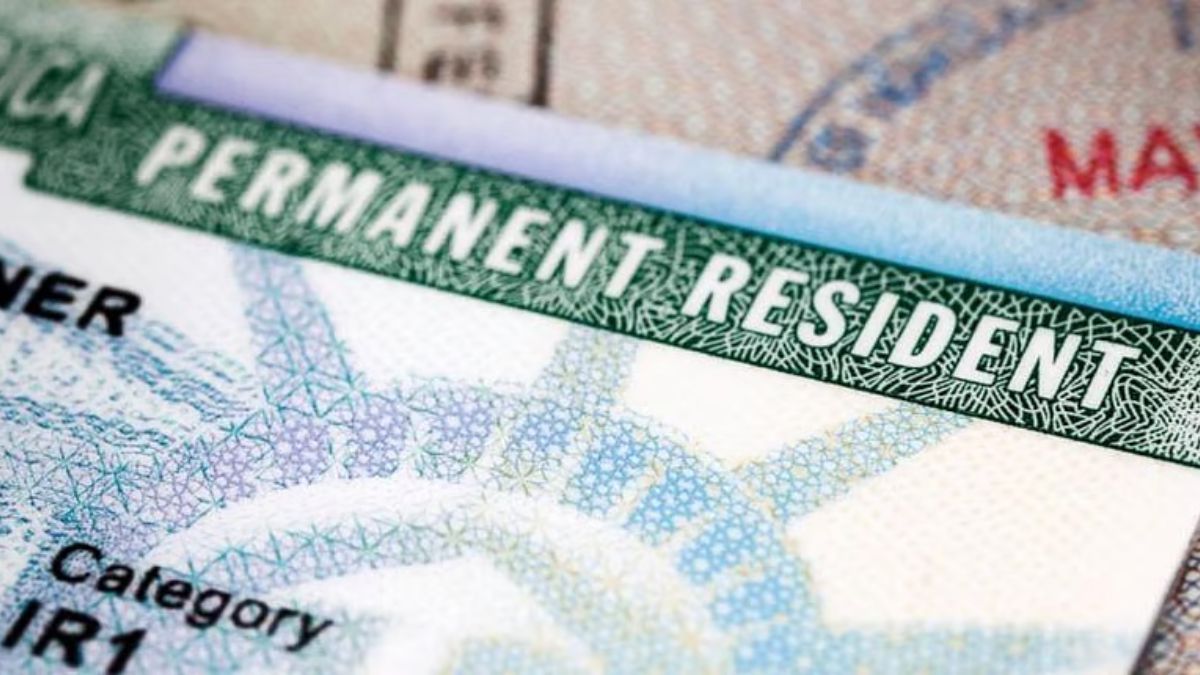In a major policy shift, the US administration is reportedly planning to curb green card access for citizens of countries already hit by President Donald Trump’s travel ban.
According to The New York Times report, the plan is still being discussed, but if it goes ahead, it would make it harder for immigrants to move toward permanent residency in the United States.
According to internal Department of Homeland Security documents reviewed by the outlet, the proposal tells US Citizenship and Immigration Services (USCIS) to treat certain “country-specific factors” from the travel ban as a “significant negative factor” while deciding Green Card applications.
In simple terms, if someone is from a country on the travel-ban list, that alone could count against them during the Green Card review process.
So why consider this change now? And who could be affected if the revised policy is approved? Here’s a breakdown of what we know.
What’s driving this change?
There’s no formal announcement yet, but the move appears to be part of the US government’s broader push to tighten immigration rules for people coming from countries that, officials believe, do not have strong systems for verifying identity documents, as reported by The New York Times.
At present, immigration officers weigh factors such as a person’s community ties, criminal history, and humanitarian needs. The proposed change would add another layer to that process: a risk assessment based on the applicant’s nationality.
President Donald Trump has defended the idea, saying a terrorist attack in Boulder, Colorado, showed the “extreme dangers posed to our country by the entry of foreign nationals who are not properly vetted.”
According to draft policy documents, some countries do not share enough background-check information with the US. Others lack reliable authorities for issuing passports or identity documents. This, officials say, limits their ability to determine whether someone qualifies for an immigration benefit.
Michael Valverde, a former USCIS official who served more than 20 years, told the NYT it remains to be seen whether applicants will still be able to overcome these automatic negatives, or if it effectively becomes a “de facto ban” for people from those countries.
If implemented, the rule would apply to green cards, asylum, parole, and some other discretionary benefits. It would not apply to US citizenship applications.
Countries on the US’ travel ban list
As of the June update, the travel ban prevents people from 12 countries, mostly in Africa and the West Asia, from entering the US, according to NYT. These include:
Afghanistan
Myanmar
Chad
The Republic of Congo
Equatorial Guinea
Eritrea
Haiti
Iran
Libya
Somalia
Sudan
Yemen
In addition to this, there are seven more countries that face partial restrictions. People from these nations are barred from permanently settling in the America and are not allowed tourist or student visas:
Burundi
Cuba
Laos
Sierra Leone
Togo
Turkmenistan
Venezuela
These restrictions are not identical for every country, but they are all covered under the broader travel-ban policy that the new Green Card proposal may now expand upon.
Who is exempt under the policy?
When the original travel ban was introduced, it did not cover everyone from the affected countries. People who already hold valid visas are allowed to enter the US, and green-card holders, officially known as lawful permanent residents, are also exempt, according to reports.
There were a few other exceptions too. For example, athletes travelling for major international events, such as the 2026 FIFA World Cup or the 2028 Los Angeles Olympics, are still permitted to apply for entry. Some Afghan nationals and US government employees who qualified for Special Immigrant Visas (SIVs) are also allowed under the exemption rules.
In Iran’s case, certain religious and ethnic minorities who faced persecution are eligible for relief. And beyond these categories, US authorities could still offer case-by-case waivers to people whose entry was considered to be in the national interest.
Also read: Is US looking to scrap the H-1B visa entirely? What’s the new law being proposed?
Ex-Biden officials, critics push back
The proposed shift has drawn sharp criticism from former Biden administration officials and immigration policy experts, who say the government is unfairly targeting people based on where they come from, rather than who they are.
They argue that the policy punishes individuals for the failures or weaknesses of their home governments, something they have no control over.
Doug Rand, who served as a senior official at USCIS during the Biden administration, called the approach “a radical change.” Speaking to the NYT, he said, “Now they’re trying to reach inside the United States and overturn the settled expectations of people who have already been here. This is an escalation of the Trump administration’s attack on legal immigration.”
Sarah Pierce, a former USCIS policy analyst, shared a similar concern. She told the outlet, “There is no way that this policy wouldn’t increase denials… the thing that’s illegitimate about this policy is that they’re predetermining that because someone is from a certain country.”
Pierce also warned that applying this new standard to people who are already living in the US could make the entire plan legally vulnerable, saying it raises serious questions about fairness and due process.
With input from agencies
)